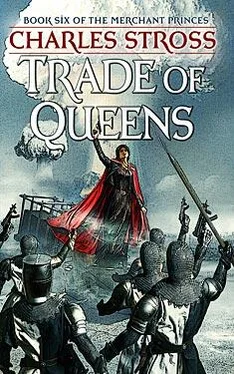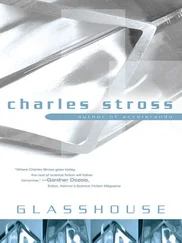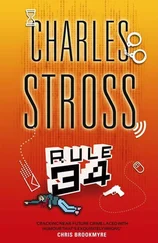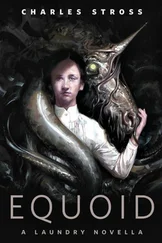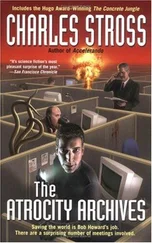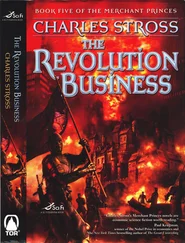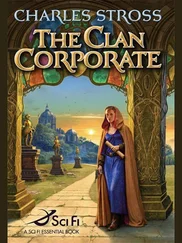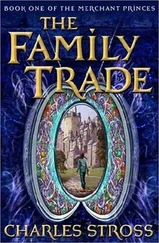Charles Stross - MP 6 -The Trade of Queens
Здесь есть возможность читать онлайн «Charles Stross - MP 6 -The Trade of Queens» весь текст электронной книги совершенно бесплатно (целиком полную версию без сокращений). В некоторых случаях можно слушать аудио, скачать через торрент в формате fb2 и присутствует краткое содержание. Жанр: Старинная литература, на английском языке. Описание произведения, (предисловие) а так же отзывы посетителей доступны на портале библиотеки ЛибКат.
- Название:MP 6 -The Trade of Queens
- Автор:
- Жанр:
- Год:неизвестен
- ISBN:нет данных
- Рейтинг книги:4 / 5. Голосов: 1
-
Избранное:Добавить в избранное
- Отзывы:
-
Ваша оценка:
- 80
- 1
- 2
- 3
- 4
- 5
MP 6 -The Trade of Queens: краткое содержание, описание и аннотация
Предлагаем к чтению аннотацию, описание, краткое содержание или предисловие (зависит от того, что написал сам автор книги «MP 6 -The Trade of Queens»). Если вы не нашли необходимую информацию о книге — напишите в комментариях, мы постараемся отыскать её.
MP 6 -The Trade of Queens — читать онлайн бесплатно полную книгу (весь текст) целиком
Ниже представлен текст книги, разбитый по страницам. Система сохранения места последней прочитанной страницы, позволяет с удобством читать онлайн бесплатно книгу «MP 6 -The Trade of Queens», без необходимости каждый раз заново искать на чём Вы остановились. Поставьте закладку, и сможете в любой момент перейти на страницу, на которой закончили чтение.
Интервал:
Закладка:
"I know it." He stared at the third number on the list. "On the other hand, they're not your regular gangsters: They think like a government."
"Some folks say, governments
are
gangsters. A bunch of guys with guns who demand money, right?"
"There's a difference of approach. Gangsters aren't part of the community. They don't put anything back into it, they don't build roads and schools, they just take the money and run. Governments think differently. At least, working ones do."
"But the Clan take money out of
our
communities. They don't spend it on
us,
do they? From our point of view they're like gangsters."
"Or an empire." Mike turned the thought around, examining it from different angles. "Like the Soviet Union, the way they drained resources from outlying territories." There was something not quite right with the metaphor, if he could just figure it out. "Oh, next number time. Area code is 506—"
They worked down the list over the course of an hour, as the jug of coffee cooled and the evening shadows lengthened outside. There were five numbers to call for varying lengths of time, at set minimum intervals; the third had an annoying voice menu system to navigate, asking for a quotation for auto insurance, and the fifth—answered in an Indian call center somewhere—was the only one with human interaction required: "Sorry, wrong number."
The whole tedious business was necessary for several reasons. A couple of random numbers to make traffic analysis harder; a couple of flags to say
I need to talk
and
I am not under duress;
and words spoken into a recording device to prove that the contact was, in fact, Paulette Milan, and not an agent in an FTO office. There were other rituals to perform: the curtains to be left undrawn in the spare bedroom but drawn in the main, a light to be left on inside the front door. Rituals of tradecraft, the magic rite of summoning spies, impenetrable to outsiders but practiced for good reason by those on the inside.
Someone sets up a small but highly professional intelligence agency. Question: Where do they get their training? Given that we know their soldiers use the USMC as a finishing school . . .
Mike pondered for a moment, then winced. Every one of the possible answers that came to mind was disturbing.
Finally they were done. "I should hear back within twenty-four hours," Paulie said diffidently. She paused.
What now?
he wondered.
"I've been staying in a motel." It would be racking up another night's charges. The idea of driving back there to spend another night in silence abruptly made him nauseous. "Don't get me wrong, but I think I should be here if they come unexpectedly—"
She looked at him thoughtfully, then nodded. "You can use the spare bedroom if you like. There's spare bedding in the closet."
"Thank you." To fill the potentially awkward silence he added, "I feel like I'm imposing on you." He'd had his fill of silence: Silence concealed lies. "Can I buy you dinner?"
"Guess so." The set of her shoulders relaxed slightly. "Where did you meet Miriam, the first time?"
The sky was overcast, and the muggy onshore breeze blew a stink of fish guts and coal smoke across the streets, gusting occasionally to moan and rattle around the chimney stacks—the barometer was falling, a rain front threatening to break the summer heat.
Driving sixty miles over the poor-quality roads in a pair of steamers with leaf-spring suspensions had taken them the best part of four hours, but they'd started early and the purposeful-looking convoy had apparently convinced the more opportunistic highwaymen to keep a low profile. The only delays they encountered were a couple of checkpoints manned by volunteer militias, and as these were mostly concerned with keeping the starving robber gangs out of their suburbs, Miriam's party were waved through—a rapid progress doubtless greased by the low-denomination banknotes interleaved between the pages of the inkjet-forged Vehicle Pilot's Warrants that Huw and Alasdair presented when challenged. It was, perhaps, for the best that the militiamen's concupiscience avoided the need for a search: much better to hand over a few hundred million New Crown notes than to risk a brisk and very one-sided exchange of gunfire.
"Did you see that?" Brill asked Miriam indignantly as they left the second checkpoint: "Half of them were carrying pitchforks! And the one with the bent nose, his tines were rusty!"
There were few obvious signs of revolution as they drove through the outskirts of Boston. More men and women in the streets, perhaps, hanging out in small groups; but with the economy spiraling into a true deflationary depression and unemployment nearing fifty percent, that was hardly surprising. There were soup kitchens, true, and the street cars bore banners proclaiming that the People's Party would feed the needy at certain listed locations—but there were also fishmongers and grocery stalls with their wares laid out in front, and the district farmer's market they passed was the usual chaos of handcarts and wagons piled high with food.
Someone
was keeping things moving, between town and country—a good sign, as far as Miriam could tell.
And then they were into familiar streets and the second car turned off, heading for its prearranged rendezvous point. "I'll get out here and walk the rest of the way," Miriam said quietly as they sat behind a streetcar that had stopped for a horse-drawn wagon to unload some crates. "You know the block. I'll remember to press once every ten minutes while things are going well."
"Check it now," said Brilliana, holding up her own earpiece.
"Check." Miriam squeezed her left hand, inside a coat pocket. Brill's unit beeped. "Okay, we're in business."
Brilliana caught her arm as she opened the door. "Take care, my lady. And if you sense trouble—"
"There won't be any trouble," Miriam said firmly.
Not with Sir Alasdair and his team watching my back.
If there was any trouble, if she was walking into a baited trap rather than a safe meeting, things would get spectacularly messy for the troublemakers. It wasn't just a matter of them having modern automatic weapons, two-way radios, and the ability to world-walk out of danger: Alasdair had cherry-picked the best men he could find in Clan Security for her bodyguard, and they'd planned and rehearsed this meeting carefully. "I'll be fine."
There was an alleyway, off the high street between two shuttered shopfronts; partway along it stood a tenement with its own shuttered frontage, and the three gilt balls of a pawnbroker hanging above the doorway. Miriam walked back along the pavement and turned in to the alleyway. There were no obvious watchers, nor loitering muggers. She marched up to the door beside the wooden shuttered window and yanked the bell-pull.
A few seconds later the door opened. "Come in, come in!" It was Erasmus, his face alight with evident pleasure. Miriam drew a deep breath of relief and stepped across the threshold. "How have you been?" he asked. "I've been worried—"
The door swung to behind her, and she took a step forward, ending up in his arms with her chin on his shoulder. He hugged her gingerly, as if afraid she might break. "It's been crazy," she confessed, hugging him back. "I've missed you too." Erasmus let go and straightened up awkwardly. "There's been a lot happening, much of it bad."
"Indeed, yes—" He took a step back, into the shadowy interior of the shop. "Excuse me." He turned and pushed a button that had been screwed crudely to the wall beside the door. A buzzer sounded somewhere below, in the cellars. "An all-clear sign. Just a precaution." He shrugged apologetically. "Otherwise they won't let me out of their sight."
Читать дальшеИнтервал:
Закладка:
Похожие книги на «MP 6 -The Trade of Queens»
Представляем Вашему вниманию похожие книги на «MP 6 -The Trade of Queens» списком для выбора. Мы отобрали схожую по названию и смыслу литературу в надежде предоставить читателям больше вариантов отыскать новые, интересные, ещё непрочитанные произведения.
Обсуждение, отзывы о книге «MP 6 -The Trade of Queens» и просто собственные мнения читателей. Оставьте ваши комментарии, напишите, что Вы думаете о произведении, его смысле или главных героях. Укажите что конкретно понравилось, а что нет, и почему Вы так считаете.
